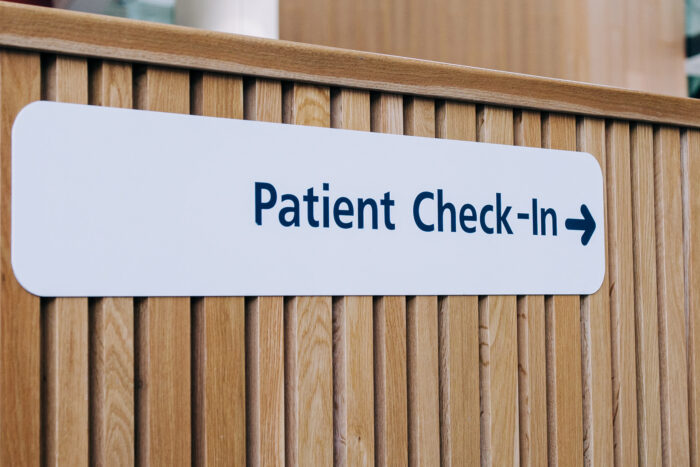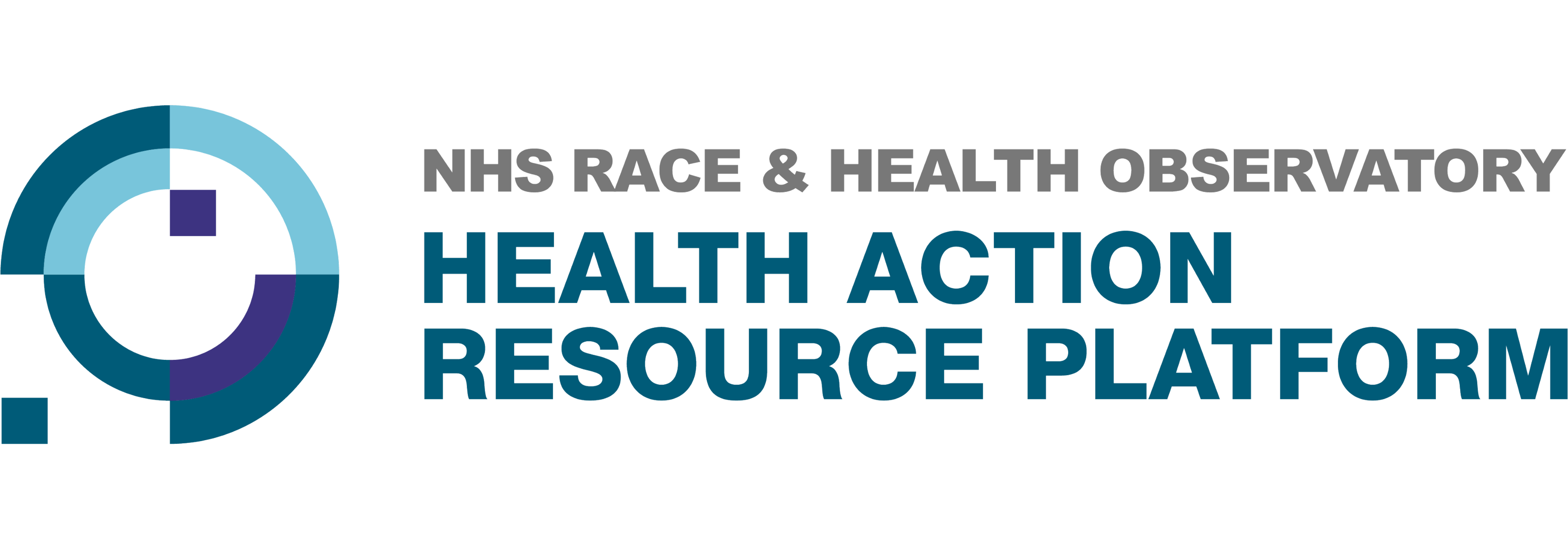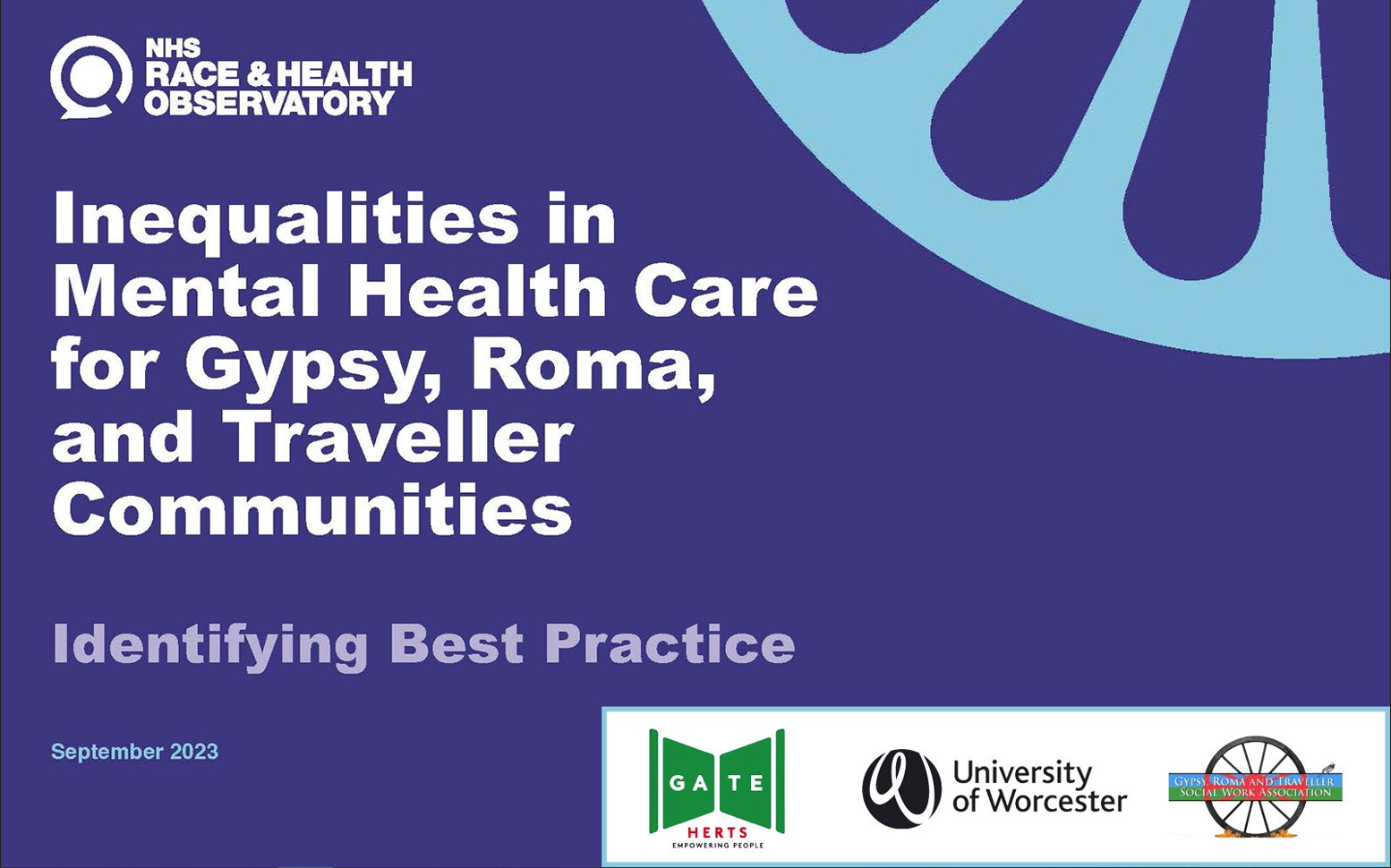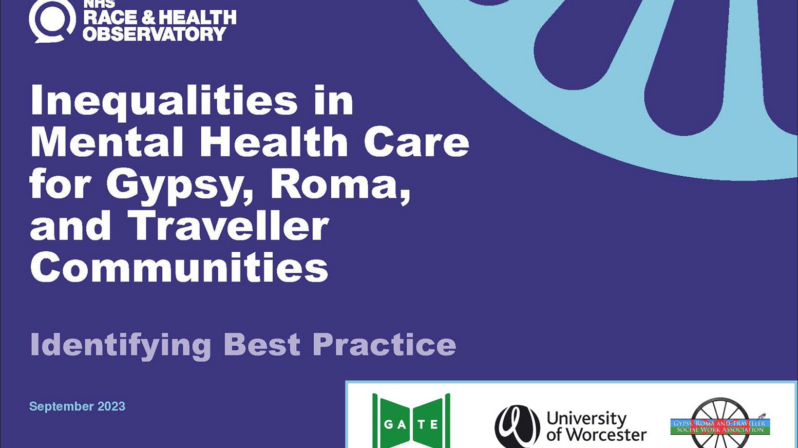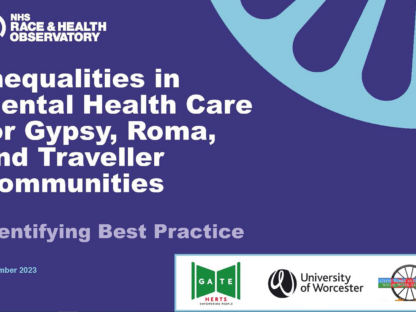This case study is drawn from a programme of research commissioned by the Race and Health Observatory and published in 2023. As part of this project, the team worked with six services in the UK and Ireland to understand good practice in mental health services for these communities. To read more about mental health in Gypsy, Roma, Traveller Communities, you can access the full research project here: https://nhsrho.org/research/identifying-best-mental-health-practice-with-gypsy-roma-and-traveller-communities/
Background
GATE Herts is a Traveller and Gypsy led organisation working in Hertfordshire, established in 2010 and a registered charity since 2019. Their aim is for Gypsy, Roma, and Traveller communities to be heard, included, and valued in all areas of life. They work in partnership to address and develop skills of members of the community through identifying housing, education, employment and health needs, all of which can be seen as contributing to the promotion of good mental health. There are 40 to 50 case work interventions for community members every week. This organisation employs five staff, and their core funding is charitable funding, with occasional funding from local council and health organisations.
In September 2022, GATE Herts hosted an information event in collaboration with Hertfordshire County Council, to mark World Suicide Prevention Day, highlighting to professionals and local voluntary organisations the challenges and barriers community members face in relation to mental health, high suicide rates, and difficulties in accessing support. It was also an opportunity for people from the Gypsy, Roma, and Traveller communities to learn more about support services available locally and nationally
In the feedback from professionals and organisations attending the World Suicide Prevention Day, 89% agreed that organisations and professionals would benefit from cultural competency training to engage with Gypsy, Roma, and Traveller communities.
“Yes, I think most people don’t have empathy or understanding about the community because they don’t know them or about their cultures and traditions, this [the training] would help create more understanding, empathy and remove bias and stereotyping”.
Bereavement Suicide and Support
GATE Herts, in partnership with the Public Health Team at Hertfordshire County Council, have been exploring ways to combat local challenges associated with the high levels of suicide and subsequent ‘copycat’ suicides among local Gypsy and Traveller families.
The purpose of this bereavement service is:
- To review the existing pathway for support for those bereaved by suicide in Hertfordshire and make adaptions for Gypsy, Roma, and Traveller people in Hertfordshire.
- To design, implement, monitor, and evaluate a peer support group for Gypsy, Roma, and Traveller people affected by suicide in Hertfordshire.
- To achieve these tasks using a co-production approach with community members and partner organisations.
The service also aims to promote mental health, suicide prevention, and bereavement support specifically targeted at the Gypsy, Roma, and Traveller communities in Hertfordshire, and to ensure they align to the needs of the specific population, being appropriate and responsive to their needs.
Key learnings from engagement
As part of the Observatory’s research, the team visited GATE Herts and spoke to those who use the service. The GATE Herts group, made up of Irish Travellers and English Romanies, spoke very openly about their mental health and gave multiple examples of families being torn apart by suicide and bereavement. They were hopeful that the planned bereavement suicide outreach project would be effective in breaking this cycle. There were opposing views expressed by those in the group who had been signposted by GATE Herts to other services – some reports were that local counselling and bereavement support services had been very helpful, whereas others reported they would never go back to a mainstream service a second time due to a lack of welcome on the first time. One participant said
“I got the feeling I wasn’t welcome there as a Traveller – it was nothing that was said, more what wasn’t said’.
Despite men in the group speaking candidly about menfolk they had lost and their own struggles, they were rather despondent about the idea that much could be done or that their stoic male culture of “bottling things up” would change very soon. There was some support for the idea that men’s activities might work if presented with a sports or similar focus, rather than being marketed as ‘mental health’ or ‘well-being’ groups. GATE Herts were seen by community members as the ‘one-stop’ shop for everything from accommodation issues through to mental health worries.
Replicable good practice
- Bereavement suicide and support initiative.
- Development of close working relationship with the public health team including Health Improvement Coordinator post.
- Mental health advocacy service delivered by community members.
- Drop-in sessions throughout the week.
Inequalities in Mental Health Care for Gypsy, Roma, and Traveller Communities
This case study is part of a report commissioned by the RHO which aims to identify best practice in mental health for Gypsy, Roma and Traveller communities.
